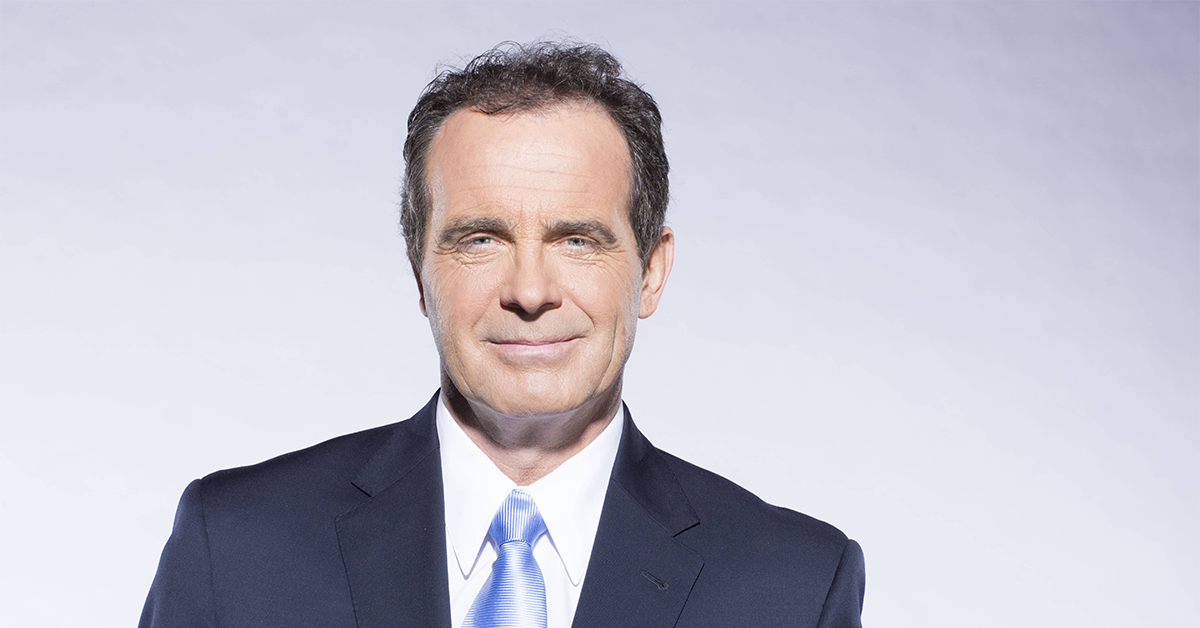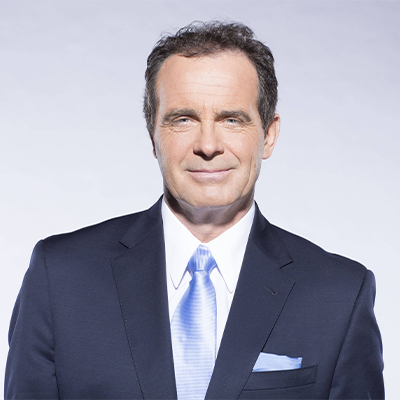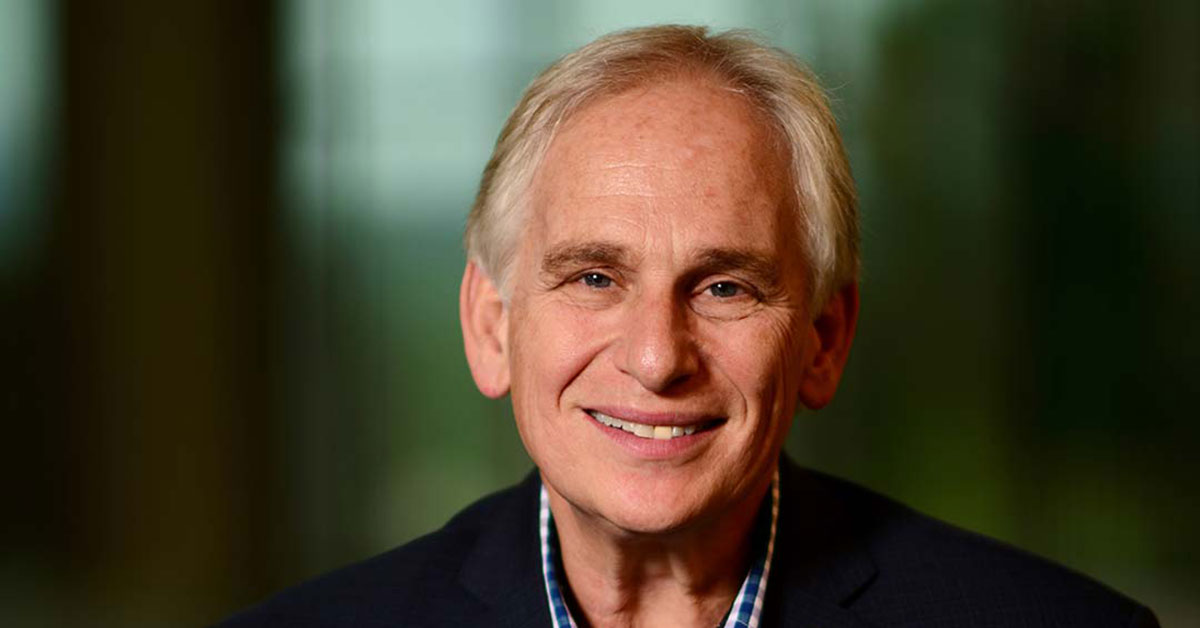From the Olympic Games to a heated rock-paper-scissors session, the beauty of competition lies in its variety. As someone who has spent his life immersed in sports as a broadcaster, player, coach and fan, I’ve seen storylines shape people in countless inspiring ways—not just as athletes but as people living their day-to-day lives.
When I was first asked to be a National Champion for the Canadian Men’s Health Foundation (CMHF), it reminded me of the moments when caring for myself didn’t come first. Like many men, I’ve juggled a career, family, and the challenges of everyday life, often putting my health on the back burner.
But over the years, I’ve learned that prioritizing well-being isn’t just a choice—it’s a game-changer. It’s about finding ways to keep moving, stay balanced, and stay connected, no matter the demands on us. Hopefully, some lessons I’ve picked up can inspire other men to put their health first, too.
Changing the “me-last” mindset
For many men, myself included, life has a way of taking us from the playing field to the sidelines. We focus on our careers, families, and responsibilities—and sometimes, our health takes a back seat. That’s a mindset we need to change. I’ve had my “aha” moments over the years when I realized I was focused on everything except my health.
Statistics tell us that Canadian men are more likely than women to engage in risky health behaviours, delay seeking medical help, and neglect preventive care. According to Canadian Men’s Health Foundation research:
- 61 percent reported having an unhealthy diet
- 56 percent reported sleeping less than seven hours, or more than nine hours, per day
- 50 percent didn’t get 150 minutes of moderate-to-strenuous exercise per week
- 29 percent are at risk for Alcohol Use Disorder
- 12 percent smoke cigarettes
The good news is that it doesn’t have to be this way. By raising awareness, offering encouragement, and providing tools and resources for men to take control of their health, we can reduce these numbers and create a future where more Canadian men and their families lead healthier, happier lives.
Staying active isn’t all-or-nothing
Sports have always been a way of life for me and my family. In addition to helping us stay physically fit, they build character, resilience, and mental strength. Sports teach us how to use failure as fuel for success and to adapt. Injuries, illnesses, setbacks, age-related changes—every challenge in sports reflects life.
As I age, I’m learning to view fitness as an essential component of longevity and quality of life. Staying active isn’t about being a top athlete or lifting the heaviest weights in the gym; it’s about moving every day, maintaining strength, and feeling good.
Small changes like daily walks, moderate exercise, and stretching can make a difference. Find activities you enjoy—“beer league” hockey, golf, hiking, bowling, or even a brisk walk around your neighbourhood—and just keep moving. Our bodies are like cars: If we don’t keep them tuned up, they’ll start to break down.
Be proactive with healthier choices
My most important advice is to be proactive rather than reactive about health. Too many of us wait until there’s a serious issue before seeing a doctor or changing our lifestyle.
This can make the road to recovery much longer and more complex. Regular check-ups, screening tests, and even simple lifestyle adjustments can make a profound difference. It’s about taking manageable steps rather than waiting for a wake-up call.
I know that starting a new fitness plan or changing up your meal routine can feel overwhelming. The key is to start by setting achievable goals you can build on gradually. Start by drinking more water, for example. Park further away from your destination than usual, take the stairs instead of the elevator or go for a brisk walk after dinner. It’s these small changes that lead to lasting health benefits.
Fatherhood
My wife and I have always been deeply involved in sports, so we encouraged our kids (now adults) to be active. We wanted to let them enjoy sports instead of being focused on “making it.”
When our kids wanted to stop playing a sport, we only asked that they choose another activity. Sitting on the couch playing video games or scrolling social media was not an option. We wanted them to be part of something, to learn, and to grow. We acted as guides, not managers, and gave them space to love what they were doing.
Breaking the silence around mental health
Too often, men are conditioned to keep their struggles to themselves, thinking it’s a sign of weakness to seek help. I’m here to say that asking for support is one of the bravest things a man can do. Mental health challenges are real, and they can affect any one of us, regardless of age, status, or background. The stigma that surrounds mental health gets wiped out by being open and honest about the struggles we face.
I have friends, colleagues and loved ones who’ve struggled with mental health, and I know how important it is to have a support system. Men need to know that they’re not alone and that mental health is every bit as important as physical health.
Community
I am passionate about working with CMHF and joining a powerful movement. Volunteering and charity work are about making a tangible impact, and I support organizations that share that philosophy.
The journey to live healthier is easier with a strong network that provides support and encouragement.
Like having teammates to rely on, we can lean on family, friends, and communities to help keep us on track. Share your goals, join a fitness class or club, and use social media to discover what motivates you.
Why being a National Champion matters to me
I am honoured to be a CMHF National Champion and feel a sense of responsibility to help Canadian men see the value of putting their health first. Shifting our collective mindset toward one that values health, encourages fitness, and breaks the silence around mental health are meaningful goals that produce positive impacts.
Throughout my career, I’ve covered inspiring stories of athletes who’ve overcome tremendous obstacles. These stories have taught me that resilience and perseverance are crucial to success. This is a lesson we can all apply to our health, whether we’re Olympians or on day one of our health journey.
Please take a moment to comment below, and let’s give Rod a warm welcome to the Canadian Men’s Health Foundation!
Are You at Risk?
Learn your risk level for the most common men’s health conditions in 10 minutes with a free, confidential, and personalized report.






Let’s Talk!
Did you enjoy this article? Let us know in the comments.
0 Comments